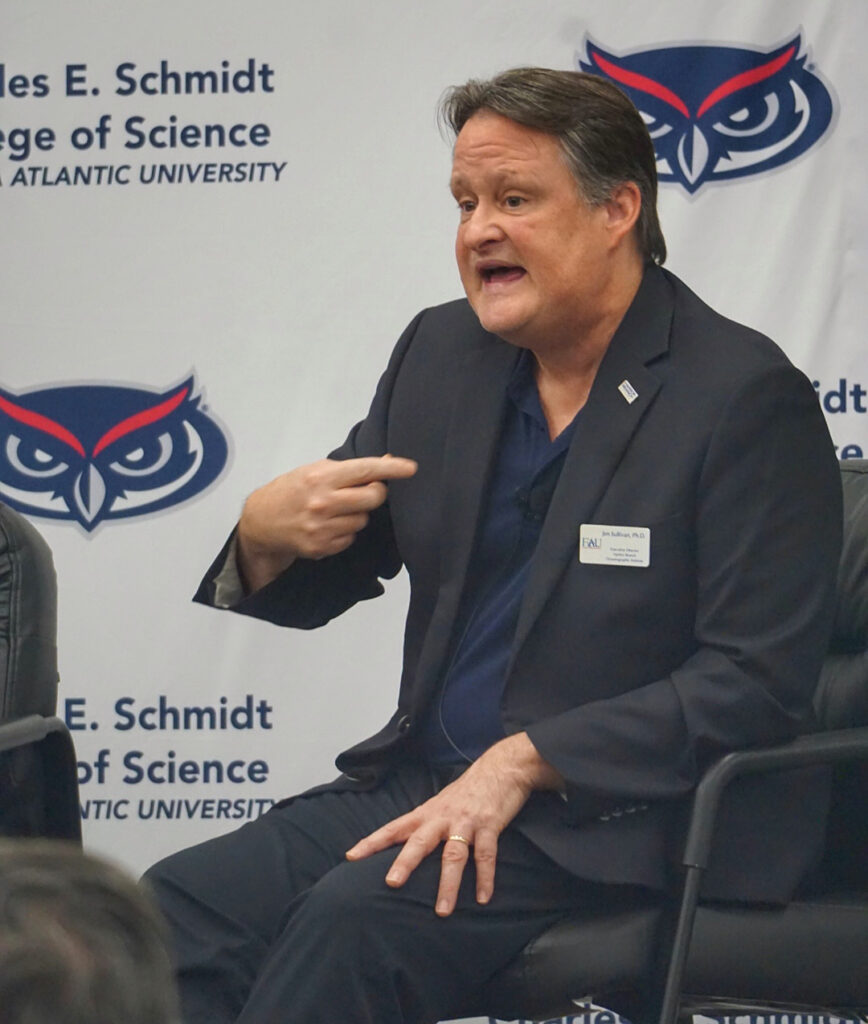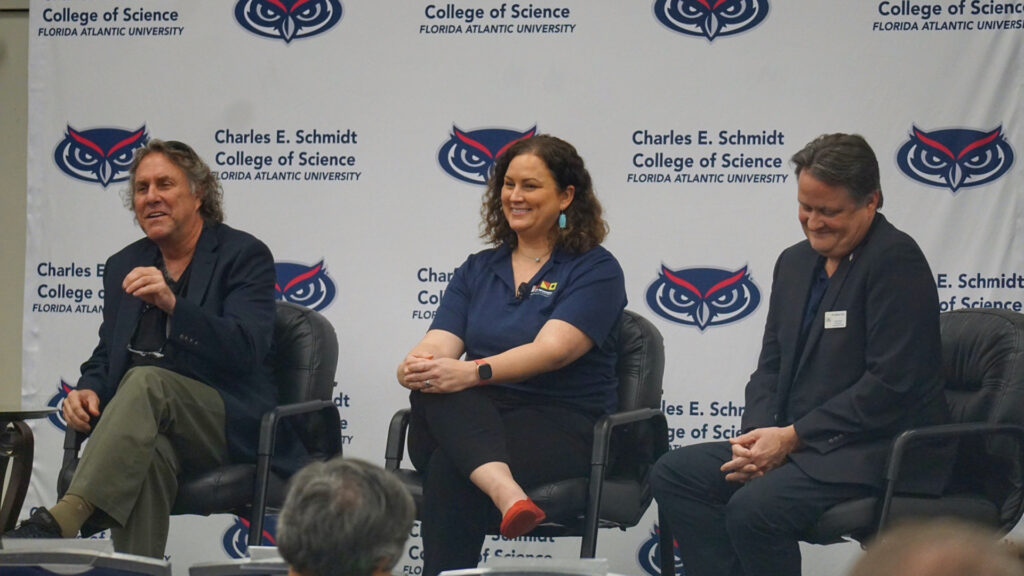By Elisabeth Gaffney
Participants in a Florida Atlantic University panel discussion Thursday emphasized the need for funding to improve water quality while also recognizing the state Legislature’s current efforts.
The panel, part of FAU’s Frontiers in Science public lecture series, covered multiple topics, including pollution from septic tanks, green infrastructure and Florida’s drinking water.
The panel, hosted by the FAU College of Science Dean Valery Forbes, consisted of three academic experts on environmental issues and an environment editor who covers South Florida for public radio station WLRN.
Environment vs. economics

Panelists spoke about how nutrients from septic tanks can pollute nearby water bodies. Excess nutrient input can contribute to harmful algal blooms, said panelist James Sullivan, executive director of FAU Harbor Branch Oceanographic Institute.
“We’re fertilizing water and it makes the algae grow. So we need to cut off that source, or this fire is going to keep on burning,” Sullivan said.
Changing from a septic tank to a municipal sewer system, however, is expensive. So until funding is allocated to transition people away from septic tanks, the problem is going to persist, said panelist Rachel Brewton, a research scientist at Harbor Branch.
Panelist Todd Crowl, director of the Institute of Environment at Florida International University, said that affluent neighborhoods might be able to bear the costs of changing a house’s water system from septic to sewer but it is much harder for lower-income areas to afford.
In WRLN Environment Editor Jenny Staletovich’s experience, connecting to the closest sewer line to her home in Miami (which is 1.5 miles away) would cost $150,000.
“I feel like if we don’t protect and conserve our water, we actually end up paying a lot more to sort of repair a lot of the damage that we’ve done,” Staletovich said.
Nature-based solutions
The panelists also highlighted the significance of green infrastructure, or nature-based solutions such as planting trees and constructing wetlands near housing in addressing water quality issues.
Mangroves, for instance, provide protection from property damage. But Crowl said that if someone were to cut down mangroves from their house to have an unobstructed view of the ocean, the “insurance companies don’t care” and would charge the same rate as a home that maintains them.

Florida’s drinking water, which is supplied largely by groundwater, was another topic of discussion. Sullivan said Florida is beginning to exhaust its freshwater reserves.
“So, as a state, we have to really start thinking about conservation. And this is not a joke,” he said.
The panelists noted progress that Florida is making is addressing environmental issues. State lawmakers recently introduced a mangrove restoration bill as well as legislation that would promote coral reef restoration.
The Frontiers in Science lecture series, which the College of Science created and recently partnered with FAU’s new School of Environmental, Coastal and Ocean Sustainability (ECOS) in presenting, brought together a diverse group of people with similar concerns about the environment.
“Frankly, when we announced (Frontiers in Science), I wasn’t really expecting anyone to really care because it’s kind of like inside baseball,” said Colin Polsky, the founding director of ECOS. “But there’s been a really positive energy from the community.”
Brewton said she believes it is important for the community to connect with scientists, which this event allowed people to do through an Q&A session and reception after the panel discussion.
“Sometimes science can be very politicized and people think they have agendas or (are) in an ivory tower sometimes, so I think it’s good to just interact with the public in this way,” Brewton said.
Elisabeth Gaffney is an FAU junior majoring in multimedia journalism. Editor’s note: The Invading Sea is managed by the FAU Center for Environmental Studies, which is directed by Polsky and falls under ECOS.
Sign up for The Invading Sea newsletter by visiting here. To learn more about harmful algal blooms, watch the video below.



